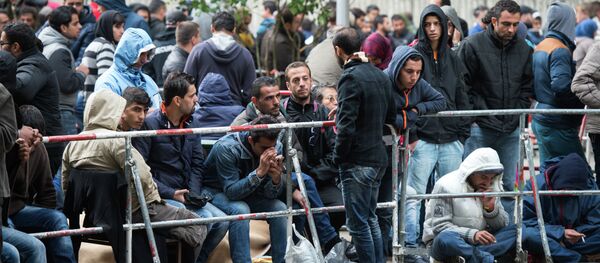Sputnik discussed this with Dr. James F. Downes, a lecturer in comparative politics at the Chinese University of Hong Kong.
Sputnik: How would you assess the latest EU meeting? What are the chances that the EU leaders will manage to bridge their differences and reach a consensus at the upcoming meeting or any time soon?
James F. Downes: [It is] increasingly unlikely that there's going to be a consensus any time soon. And the main reason I say that is primarily because there just seem to be such massive and substantial political divisions between a number of EU states. And, in particular, Merkel, one of the driving reasons many commentators have said that she [pushed for] this mini-summit to take place, at the beginning, was this kind of so-called internal party dispute that she has with her interior minister, Horst Seehofer.
READ MORE: EU Rejected Proposal to Set Up External Migrant Disembarkation Centers – EC
And at the same time… Merkel is facing issues from the far-right Alternative for Germany party. If we look more broadly across the EU, it's going to be incredibly difficult to see a consensus occurring. If we look at countries such as Hungary, they've increasingly become very anti-immigrant, and also not accepting any more refugees. We also have seen Prime Minister Conte's 10-point plan. So, in my personal opinion, I think it's increasingly unlikely that we're going to see that any time soon. I think this mini-summit has no decisive outcome.
Sputnik: The European Union's leadership has been criticized for its inability to handle the refugee crisis. In your opinion, why did Brussels fail to cope with this issue?
Sputnik: Earlier, the German chancellor said that migrants should seek asylum and register in the first country they arrive in, which makes Italy and Greece, which are the main entry points to the European Union, the countries where asylum seekers would apply. Why should Italy and Greece, most affected by the migrant influx, bear the brunt?
James F. Downes: That's clearly why especially Italy and Greece feel under threat. The so-called Dublin Agreement, this key regulation that the EU had in place, is arguably in need of reform here. If you look at it from an Italian perspective or a Greek perspective, then you feel that you've got this influx of refugees, and that's not that surprising. What's quite interesting is that when the migration crisis began in 2015, we saw over a million or more refugees coming into Europe, into countries such as Greece, Italy and Germany. But if we look at the data from this year's first six months or so, there's been quite a massive reduction across all countries.
READ MORE: European Commissioner Backs Sanctions on EU States Denying Asylum to Migrants
At the same time, that's interesting because we see a big disconnect, there's a reduction this year in the official data, but when we look across the EU parameter, the Pew Research Center, in countries such as Italy, Austria and Germany, immigration is one of the most important issues, or the migration crisis is one the most important issues amongst voters. […] There's also this perception that some commentators have in recent academic studies that so-called traditional social democratic parties, those political parties on the left wing of the spectrum, have been trying to sweep the immigration issue under the carpet. And, arguably, we've seen far-right parties capitalizing from that. The recent Hungarian election that took place, it's fascinating from an elections perspective, because we literally see no left-wing party at all anymore in that system. […] I think the broader take away message here is that mainstream parties on the left and also the right have got to try to engage in this issue, not sweep it under the carpet, and try to understand the concerns that voters have there. I think that's something that voters feel. When we look at public attitude, opinion surveys, a lot of them say their voice isn't being heard at the moment.
James F. Downes: In an ideal world, you would like there to be a so-called sharing between different member states, having the same amount of resources and taking in the same amount of refugees. The difficulties here are that this procedure is unlikely to take place because Hungary is completely opposed to any new numbers. The Hungarian leadership didn't to even attend the summit along with Poland. I think, theoretically or from a more normative perspective, there can be a case for so-called richer countries to take more numbers in, but I think based on the current geopolitical situation across Europe at the moment, electoral volatility, I think it's very unlikely that any time soon there's going to be a kind of deadlock to solve this issue. I think it's likely that this issue is going to keep rumbling along.
The views and opinions expressed by Dr. James F. Downes are those of the speaker and do not necessarily reflect those of Sputnik.



